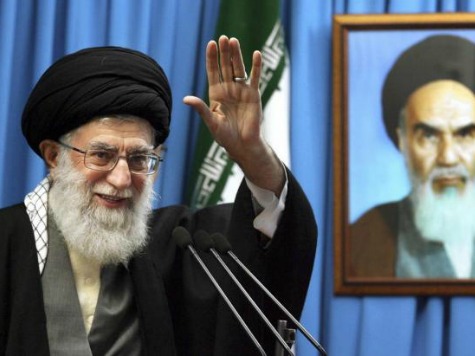The United States is prepared to work with the Iranian regime to defend the Iraqi government against the Sunni terrorists who are trying to take over the country, Secretary of State John Kerry said earlier this week. Though the Obama administration was quick to insist that cooperation with Iran will not include military coordination, that is likely untrue: in the present circumstances there is no other cooperation that would be worth discussing.
In principle, there is no reason to shun cooperation with even the worst regimes when it might advance our own strategic interests. There was hardly a more evil regime than Stalin’s Soviet Union, and yet President Franklin Delano Roosevelt worked closely with the USSR in the joint struggle against the Axis powers in World War II. However, Roosevelt’s failure to anticipate Stalin’s moves to gain postwar advantage offer an important lesson.
That lesson is as follows: in pursuing short-term goals, we cannot forget our long-term interests. And in the case of Iran, our long-term interest is in the replacement of the Iranian regime with a democratic alternative. Iran’s leaders understand that very well, far better than President Barack Obama, who seems convinced that the real U.S. interest lies in a “new equilibrium” to strengthen Iran as a counterweight to the Sunni powers (and Israel).
Any cooperation with Iran must strive to prevent, or at least, minimize, Iranian influence in Iraq. We cannot let Iran extend direct control from Tehran in the east to Lebanese Tripoli in the west. Nor can we allow cooperation with Iran in Iraq to be used against us as leverage in Syria, or in negotiations over Iran’s nuclear program. Iran remains an enemy, and all the appeasement of the past five years has not slaked its anti-American blood-thirst.
It is fashionable, in ongoing debates about Iraq, to blame former President George W. Bush for the instability in Iraq (as if Saddam Hussein had been a stabilizing influence, rather than a constant threat to his neighbors and to Iraqis themselves). Yet it is worth remembering that Iran has been meddling in Iraq for more than a decade, arming and training both Shia and Sunni groups in an effort to destabilize the country and thwart U.S. efforts.
That point is worth repeating: Iran–a Shia theocracy–has been aiding Sunni terrorists. Sen. John McCain was ridiculed by the left during the 2008 election for supposedly conflating Sunnis and Shias when blaming Iran for the chaos in Iraq. The aim was to paint McCain as the second coming of Bush, who was supposedly too stupid to understand the country he had invaded. Yet McCain insisted he was correct about Iran–and, largely, he was.
Iran has never shied away from cooperating with religious or political enemies, when doing so has suited its own agenda. Therefore it sought Israeli weapons while it was fighting Iraq in the 1980s, helped Americans when the Taliban were perceived as a threat, and has developed commercial ties to Europe even as it has developed ballistic missiles capable of reaching European capitals. It has never once lost sight of its overall strategic goals.
The U.S. must not behave as if it needs Iranian help in Iraq (a point that would be clearer if Obama had kept a residual U.S. force there). On the contrary, we should understand that our overall goal must be to roll back Iranian influence in the region, even if our interests align for now. Treating Iran as the solution to an acute crisis it helped create is just more of the same myopia that has plagued U.S. policy for several administrations.

COMMENTS
Please let us know if you're having issues with commenting.